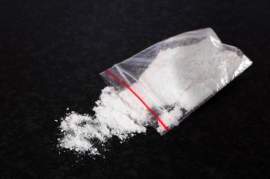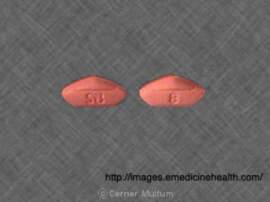
Pure Food and Drug Act

PURE FOOD AND DRUG ACT TEXT What is the Pure Food and Drug Act? The Pure Food and Drug act of 1906 is a federal law that mandates for the inspection of meat products and forbids the sales, manufacturing or transportation of poisonous patent medicines and adulterated food products. The Pure Food and Drug Act was the first of more than 200 federal laws that constitute one of the world’s most inclusive and operative networks of consumer protections and public health concerns. The purpose of the Pure Food and Drug Act was to protect the American public from products identified as healthy without a scientific basis or support. The act also aimed to protect against the adulteration of food; the act was implemented to curb the spread of disease and food-induced illnesses. The Pure Food and Drug Act aimed to clean-up the American food and drug industry. At the turn of the 20th century, America’s food supply was enshrouded in unsafe and disgusting practices. Diseases were rampant as American slaughter and packing houses were not regulated nor checked for sanitation purposes. At this time there were now laws permitting the government to inspect these hubs and food processing plants. As a result, these filthy stations processed and packaged food, then shipped the product throughout the country. The end result What Sparked the Passing of the Pure Food and Drug Act? The Pure Food and Drug Act aimed to clean-up the American food and drug industry. At the turn of the 20th century, America’s food supply was enshrouded in unsafe and disgusting practices. Diseases were rampant as American slaughter and packing houses were not regulated nor checked for sanitation purposes. At this time there were now laws permitting the government to inspect these hubs and food processing plants. As a result, these filthy stations processed and packaged food then shipped the product throughout the country. The result was the delivery of an unsanitary and potentially deadly food product. A heightened Public awareness during the early 20th century regarding the issues surrounding careless food preparation and the growing rate of drug addictions from patent medicines influenced government to create and subsequently pass the “Pure Food and Drug Act of 1906.” Although the public outcry was substantial, this fervency was sparked by federal employees. Individuals, such as Dr. Harvey Wiley (Chief Chemist for the Department of Agriculture) published findings on the widespread use of malignant preservatives used in food preparation and the meat-packing industry. These findings were accelerated by the “embalmed beef” disaster imposed on American Soldiers during the Spanish-American War—a violent outbreak that killed thousands of troops. The foundation of the Pure Food and Drug Act was promulgated by Theodore Roosevelt. The President began the process of implementing food and drug safety protocols by ensuring the passages of preceding legislation, including the Meat Inspection Act of 1906. These laws built the frameworks for the Pure Food and Drug Act. What did the Pure Food and Drug Act of 1906 Enforce? The Food and Drug Act of 1906 was applied to all food products shipped in foreign or interstate commerce. The purpose of the Food and Drug Act was to eliminate misbranding or adulteration from occurring. The Federal Government defined alteration in the following ways: for confectionary products, adulteration occurred when the product yields any mephitic or poisonous colors, flavors or any ingredients that are regarded as harmful. Food products were considered adulterated if the good contained decomposed or filthy animal matter or byproduct. Food was also labeled as adulterated if the product contained deleterious ingredients, was poisonous or was comprised of inferior components. The Pure Food and Drug Act of 1906 contained the following provisions: • The Pure Food and Drug Act of 1906 required all drugs to be shipped and stored on commercial shelves with clearly-readable warning labels. These warnings labels must notify the user of any habit-forming drugs within the product or any damaging side effects. • The Pure Food and Drug Act of 1906 required that all prescriptions be supplied and affirmed only by licensed physicians. If the prescription was not given by a licensed physician the patient would be disallowed from purchasing the said drug. • The Pure Food and Drug Act of 1906 prohibited the delivery of diseased or otherwise rotten food in interstate and foreign commerce. The Act also barred the use of spoiled vegetable and animal products. Food was not to be delivered with substituted ingredients that would irritate or add harmful ingredients. In terms of drugs, the Pure Food and Drug Act of 1906, enabled government to seized any drugs or offending bodies that violated the warning sign stipulations of the act. • The Pure Food and Drug Act created the Food and Drug Administration. Absolutely its most notable provision, the creation of the Food and Drug Administration established a government agency that was responsible for the testing of all foods and drugs used for human consumption. Facts about the Food and Drug Administration: Currently operating within the United States Department of Health and Human Services, the Food and Drug Administration, is responsible for promoting and protecting public health through the supervision and regulation of food safety, tobacco products, prescription drugs, dietary supplements, vaccines, over-the-counter pharmaceutical drugs, cosmetics, medical devices, biopharmaceuticals, electromagnetic radiation emitting devices, vaccines and veterinary products. The Food and Drug Administration, in addition to regulating the aforementioned products, enforces various laws to promote the safe consumption of food and legal drugs. To accomplish its goal, the FDA, enforces Section 361 of the Public Health Service Act, which institutes a series of regulations and requirements concerning the sanitation of said products, particularly how they are shipped and stored. Through their enforcement capabilities, the Food and Drug Administration aims to control the spread of outbreak and food-related illness.



















